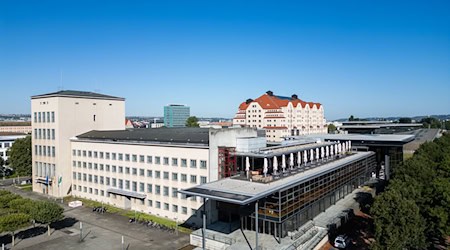Shortly before the elections in Thuringia and Saxony, pollster Manfred Güllner believes that the outcome is unusually difficult to predict. The influence of the terrorist attack in Solingen on the results of individual parties on Sunday is open, said the founder of the Forsa Institute at a panel discussion of the German Press Agency in Berlin. "We have a lot of uncertainty anyway."
The two prime ministers - Bodo Ramelow (Linke) in Thuringia and Michael Kretschmer (CDU) in Saxony - are both very popular, Güllner explained. This also applies to supporters of other parties, but they did not vote for the incumbents.
"This is a situation, a decision-making matrix, that we are not used to in the old federal states," said Güllner. "This creates a great deal of uncertainty as to whether the moods we measure before the election will also translate into votes." He added: "In case of doubt, we really have to wait for the election results, perhaps even the final result, to know which coalitions are even possible."
"Considerations on tactical or strategic voting"
The Dresden political scientist Hans Vorländer expressed the expectation that the CDU could score points in Saxony with the migration debate. On the one hand, federal CDU leader Friedrich Merz gives the impression that he is taking the reins. On the other hand, Saxony's Minister President Kretschmer has always set the agenda himself. "Unless I'm very much mistaken, this will pull the CDU back up a bit," said Vorländer. "Whether it will be enough to make it stronger than the AfD is another question."
This year, there are a particularly large number of undecided voters, said the long-standing researcher at TU Dresden. And among these voters, "there are indeed considerations of tactical or strategic voting". The question is whether the CDU should be made the strongest force or whether the Greens and SPD should be helped into the Saxon state parliament "so that the CDU is not embarrassed to enter into talks with BSW".
In Saxony, Kretschmer is currently governing with the SPD and the Greens. In recent polls, the CDU was ahead of the AfD, which came in at around 30 percent. In Thuringia, the AfD has been in first place in the polls for some time, well ahead of the CDU and the Sahra Wagenknecht alliance.
Copyright 2024, dpa (www.dpa.de). All rights reserved










